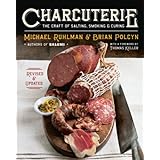If you dry cure or equilibrium cure, the ingredients are weighed and not measured. These can go a few days longer without affecting texture or having nitrite burn.
The recipe you are using is based in the immersion pickle / wet cure principal. In theory, the meat will pick up an average of 4% based on the weight of the meat itself.
With years of curing, I personally find the above recipe not in line with other authors and leaders in the curing information base. It doesn't mean it's a bad recipe, just that personally I wouldn't follow it. Do your homework and compare to other professionals who are well known in the curing field.
I would stress to all beginners to use only a tested and proven recipe from a reliable source, there are many recipes I have found on the Internet that I would have concerns about. Just because it's out there doesn't mean it is correct. Also the use of an electronic scale that also has a metric mode is an invaluable must have. The weighing of the cure is critical to food safety, so if everything is properly weighed and not measured, you will have a great product in the end.
I would suggest doing some reading so you have an understanding of some of the processes......
Keep in mind there are many different types of meats that contain a cure so they can be safely smoked, while others are cured and dried. It is important that you follow the recipe using exact amounts as well as the proper procedures to maintain a safe meat product. When in doubt read and read again, and ask questions if you need to.
Here on the BBQ-Brethren we have Wayne and he has a blog -
http://playingwithfireandsmoke.blogspot.com/
We also have Jeanie who has Cowgirl's Blog -
https://cowgirlscountry.blogspot.com/
They contain resources on curing as well as other items
You also have Len Poli's site -
http://lpoli.50webs.com/Sausage recipes.htm
Corned Beef-
http://lpoli.50webs.com/index_files/Corned_Beef.pdf
You'll see that although he used metric weight measures, he coverts them to our imperial measure to get as accurate as possible. Look at the difference in measures and times between the recipes.
Resources for tested recipes:
Wendliny Domowe - Meats and Sausage (Based on some of Marianski teachings/recipes):
http://www.meatsandsausages.com/
http://www.meatsandsausages.com/sausage-making
https://www.meatsandsausages.com/sausage-recipes
Len Paoli's Recipe site
http://lpoli.50webs.com/Sausage recipes.htm
The Spicy Sausage
http://thespicysausage.com/sausagemakingrecipes.htm
Sausage Mania
http://www.sausagemania.com/tutorial.html
Lets Make Sausage
http://www.lets-make-sausage.com/Sausage-making-equipment.html
Sausage Making Org
http://forum.sausagemaking.org/
Northwest Smoking
http://web.archive.org/web/20010214020112/http:/home.att.net/~g.m.fowler/frame/Sausage1.htm
Sausage Recipes from Stuffer's Supply Company in British Columbia, Canada
https://kickam2.com/sausage/sausrecp.pdf
Sausages West
http://sausageswest.com/7-recipe-index/
http://sausageswest.com/sausage-mak...sts/not-sausage-making-home-page-close/index/
https://www.meatprocessingproducts.com/sausage-recipes.html
http://web.archive.org/web/20010214020112/http:/home.att.net/~g.m.fowler/frame/Sausage1.htm
and so many more....
While there are many books out there that all contain enough information to get you off to a good start, there are a few books that I would highly recommend.
First Recommendation..
Home Production of Quality Meats and Sausages by Stanley Marianski and Adam Marianski
This is a book that covers everything from making a smokehouse, to curing meats, and making sausage. Very easy to read with a great collection of recipes and techniques for the beginner. This book is actually two other books ("Meat Smoking And Smokehouse Design" and "Polish Sausages, Authentic Recipes And Instructions") combined into one single book plus more on making sausage and curing meats. Most are simple one Kilogram recipes, so you can make a small batch of the product before deciding to make a large batch. This also makes it easier to make a larger batches with easy multiples. The use of a metric scale in sausage making and curing makes the process much more accurate and provides a consistent product time after time.
Second Recommendation..
Great Sausage Recipes and Meat Curing by Rytek Kutas and Ben Kutas
This is often called the definitive book on sausage making. The explanation of how cures work, and what they are for, just this understanding to a beginner is worth the price of the book. However the smallest quantity the recipes is for ten pounds, so a beginner will have to properly calculate and scale down the recipes. The book is equally helpful to the beginner or the advanced. Some of these recipes are a little too salty for my taste, but I just make a note in the book and reduce the salt in the next batch. The book also contains a some stories that are entertaining. *** DO NOT BUY THE BOOK / DVD COMBO, in my opinion the DVD is completely worthless, even to a beginner, but that's just my personal opinion.
Third Recommendation..
Charcuterie: The Craft of Salting, Smoking, and Curing by Michael Ruhlman and Brian Polcyn
This is a great book, although it lightly touches the basics, I feel the book is more for an intermediate or advanced sausage maker. Most recipes are in five pound batches, but I suggest you scale them down to try them before making a large batch. You'll find that you will have to tweak a lot of the recipes to your individual liking / tastes. This book takes sausage to the next level with using some top shelf ingredients as well as some hard to find ingredients to make sausages that could be considered in the "gourmet" classification. Michael Ruhlman has many proven recipes, but you must have an understanding of the basics before you try to get into the gourmet type recipes contained herein. Some of the recipes are a little heavy handed with salt and sometimes what I would consider heavy cure. So do your own calculations and make notes accordingly in the margin.






